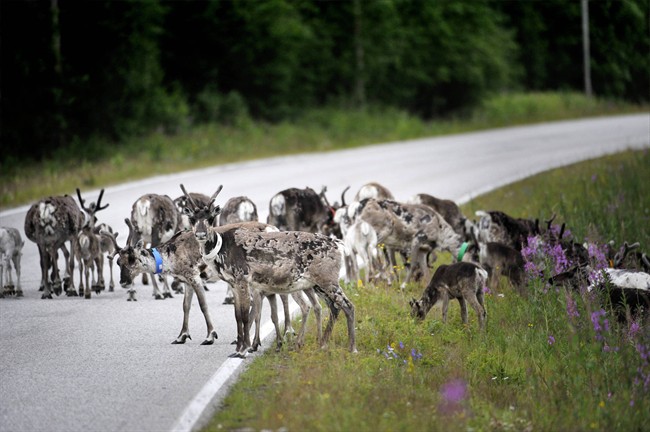It’s not a great time to be a reindeer.

A few months after 323 of the cold-climate animals were struck down by a freak lightning storm in Norway, and another 250,000 were facing destruction as a result of a Russian Anthrax outbreak, a new study suggests reindeer living on the Arctic tundra are in for a very rough ride as the planet warms.
A team of researchers from around the globe have been studying what they call “mortality episodes” (mass deaths in herds) among reindeer inhabiting Russia’s Yamal Peninsula.
WATCH: Older sea ice disappearing from the Arctic

In an article published this week in the journal Biology Letters, the ecologists conclude that an increase in heavy autumn rains on the peninsula — linked to global warming and receding sea ice that exposes warmer water underneath — are resulting in thick layers of ice hardening on top of snow.
Reindeer hooves can’t penetrate the icy cover formed after these rainstorms to access the Arctic plant life underneath, so thousands of them starve to death.
The last time it happened was in November 2013, the authors note, when 61,000 of Rudolph’s brethren succumbed to famine. Another 20,000 perished seven years before, in November 2006.
Such events have occurred every decade or so for a long time, according to the indigenous herders interviewed by the authors, but they’ve been happening more frequently lately.
READ MORE: NASA releases video of melting polar ice caps
Arctic populations around the world have reported a much faster rate of change as a result of climate change than their more southern neighbours.
And it’s not just Russia’s reindeer that are suffering — it’s the nomadic Nenet people who rely on the animals.
“Fieldwork with migratory herders has revealed that the ecological and socio-economic impacts from the catastrophic 2013 event will unfold for years to come,” the researchers wrote.
“The suggested link between sea ice loss, more frequent and intense (rain-on-snow) events and high reindeer mortality has serious implications for the future of tundra Nenets nomadism.”
The paper suggests that “even a few days of early warning could make a critical difference” the next time there’s a major rainstorm that freezes the tundra solid.




Comments